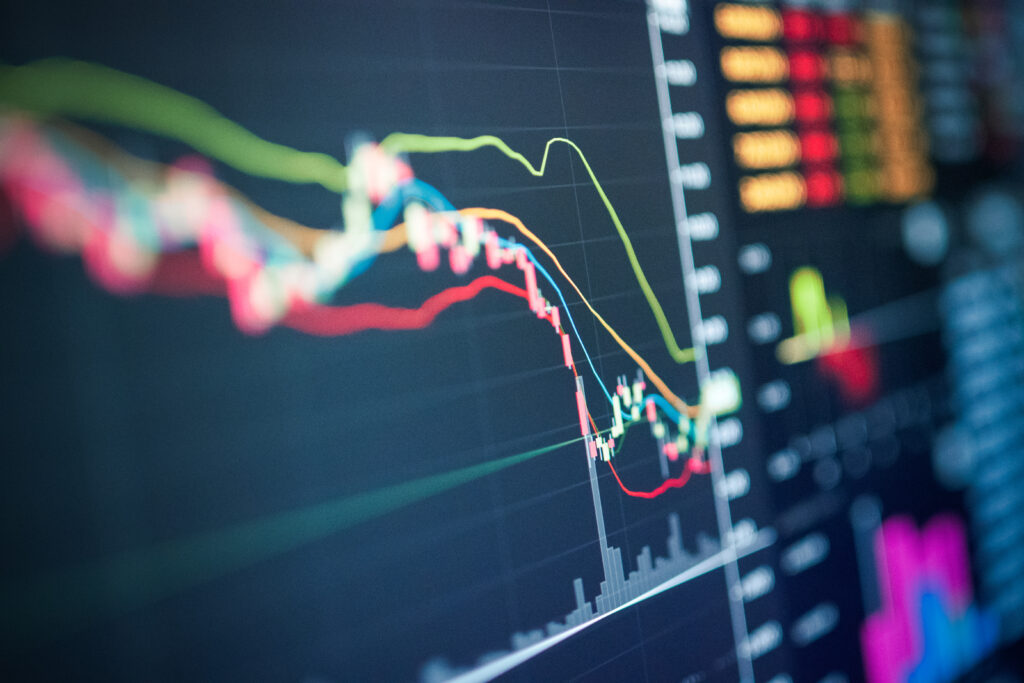The best defence: Investors turn to European defence stocks as Ukraine conflict lingers
War. What is it good for? Well, it is not that bad for many European defence stocks.
The Russian invasion of Ukraine in 2022 fundamentally altered European geopolitics and the continent’s view on military funding.
Last week’s NATO summit in Lithuania saw European countries commit to annual spending of 2% of GDP on defence, 20% of which will be spent on new military technology.
The summit also laid out a roadmap for Sweden to join the alliance alongside a revamp of defence plans against possible Russian incursion into NATO territory and security assurances for Ukraine.
All of which will require large capital outlays towards defence contractors. Equity investors clearly see European companies will be on the winning side.
European defence stocks are up around 50% since the beginning of 2022 and around 26% higher than one year ago. By comparison, the Stoxx 600 has risen by 9% in the last year. European defence stocks are already on par with the performance of US tech benchmarks.
Some are also posting major revenue growth because of the conflict.
Germany’s Rheinmetall [ETR:RHM], one of the best performing stocks in Europe since the beginning of the of the war, saw its annual revenue grow by 13% in 2022, according to its annual report, greater than US tech giant Apple [NASDAQ:AAPL].
On the ECM frontline
ECM activity in European defence stocks has diminished in the past few years, largely due to governments stalling sell-downs in state-owned defence contractors. France’s Safran [EPA:SAF], which contributed billions of defence ECM volume up to 2018, was one of such names.
However, there are equity finance opportunities for defence companies out there, particularly to fund growth and M&A.
Three ECM bankers speaking to the ECM Pulse this week said that investors had been enquiring about possible equity capital raising from listed defence companies.
One of the bankers said Rheinmetall, for example, which sold a dual-tranche EUR 1bn convertible bond in January, primarily for the acquisition of Spain’s Xpal and for growth, would be a perfect candidate to come back for more.
“I am sure every bank is trying to have more conversations with management about capital raising,” he said.
After the Xpal debt and equity deal financing, the company has enough firepower to pursue its strategy as a consolidator in the sector if relevant opportunities appear, a source close to the company said.
A second banker pointed to companies such as defence company Thales [EPA:HO] as another example of an active M&A player in the sector.
The French firm recently announced exclusive negotiations for Cobham Aerospace Communications, which it will finance from available cash resources.
However, Thales is also reportedly eying more acquisitions and equity investors are happy to support the endeavour, the banker suggested, adding more firms like it will turn to equity finance for sector consolidation.
Defence IPOs are also in focus, with German manufacture of gearboxes for tanks Renk reported to be preparing for a listing.
Triton Partners-backed Renk, which has a score of 72 according to Mergermarket's Likely to Exit (LTE) predictive algorithm*, is as an ideal IPO candidate in the near future, said the first ECM banker, given the interest in defence stocks.
An IPO, likely towards the end of 2023 or early 2024, plays well with investors given the Ukraine war geopolitics, said a source close to the situation. It will be interesting to see whether the company attracts some non-typical IPO investors into the book because of its sector, he added.
“NATO developments around the necessary resources in a scenario of shifting geopolitics and the addition of the new members to the coalition are positive,” said a second source close to the deal. “Growth projections are high, and the company has a solid reputation.”
The first ECM banker said he was speaking to other smaller defence contractors and manufacturers suddenly studying the possibility of an IPO given rapidly increasing revenue.
Rheinmetall and Thales did not respond to requests for comment. Triton and Renk declined to comment on the IPO.
No ESG worries
While companies producing weaponry may have once triggered ESG concerns for investors, the war in Ukraine has fundamentally changed the dynamic.
An industrials banker said he had a client that worked in explosives, which had gone from being un-investable to being in high demand because of an increase in its margins.
The two sources working on the Renk IPO said that there had been no ESG pushback from investors.
“As investment in defence has been rising and with the Ukrainian war ongoing, it is almost seen as ESG compliant,” he said.
The third ECM banker, while not going so far, said there was “no allergy” towards defence stocks among equity investors as there was with other sectors with problematic social consequences.
Returns made in the sector are too good to ignore and most equity investors, aside from pure ESG funds, would find a way to be comfortable as they did with gaming, the second ECM banker said.
“It’s portrayed as investing in a battle of good vs evil,” he said. “People are looking for certainty and with the war in Ukraine, this looks like one of those opportunities.”
Investors should take NATO pledges with a hint of cynicism, cautioned a lawyer. Once the war is over, governments might shift their spending priorities.
Yet, despite being a niche sector the war made defence stocks far more fashionable, just like oil and gas. “If there’s money to be made, investors aren’t shying away,” he said.
*Mergermarket's LTE predictive analytics assign a score to sponsor-backed companies to help track and predict when an exit could occur through M&A, an IPO, a direct listing or a deSPAC transaction.
Keep up to date with all ECM deal activity, including secondary block trades, with Dealogic’s market report.










